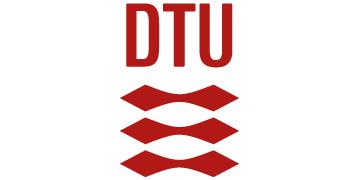Senior Researcher for Atmospheric Electrical Discharges - DTU Space
We are looking for a senior researcher candidate with an observational, theoretical, and numerical background to work on the topic of lightning and upper atmospheric discharges.
Responsibilities and qualifications
You will be working as an independent PI within the group of Atmospheric Electricity (AE) at DTU Space. The AE group leads the ESA Atmosphere-Space Interactions Monitor (ASIM) mission on the International Space Station (ISS) and leads the THOR-DAVIS project on the International Space Station (ISS) that is testing a neuromorphic camera for lightning and upper atmospheric discharges detection.
You will be responsible for setting up and driving your own independent research program, by generating funding to open new research and technology lines to complement and extend the group’s activities. Your work will be focused on developing neuromorphic imaging for future space applications, researching the nature of lightning, improving lightning protection techniques, and understanding the role of thunderstorms in a changing climate.
The successful candidate is well-motivated, hardworking, and willing/able to work as part of a team supervising students, PhD students and postdocs. The candidate should have a PhD degree and several years of research experience in the field of atmospheric electricity, atmospheric physics, and lightning microphysics. They must have extensive international experience as a postdoctoral researcher and fulfil the requirements for a senior scientist at DTU.
- The candidate must have extensive experience and conducted detailed studies of lightning and Transient Luminous Events (TLEs), with measurements, modelling, and simulations, in particular in the physical mechanism of lightning initiation and propagation.
- The candidate is expected to have several years of experience in data analysis related to different lightning detection techniques in optical and electromagnetic radio bands, such as ground-based lightning radio sensors, Lightning mapper arrays and satellite-based lightning imagers for ASIM, ISS-LIS and GLM, as well as other meteorological satellites.
- The candidate must have a strong scientific background and experience in the propagation effects of Lightning Electromagnetic Fields, Atmospheric Remote Sensing and Lightning Physics.
- The candidate should have experience in successfully applying for research grants in the area of atmospheric electrical discharges or instrumentation for studying these phenomena.
- Additional experience in collaboration with industry in understanding and developing more accurate and practical lightning protection systems is considered an advantage.
- It is an advantage to have experience with neuromorphic cameras.
You must contribute to teaching at the Department. DTU employs two working languages: Danish and English. You are expected to be fluent in at least one of these languages, and in time are expected to master both.
As a formal qualification you must hold a PhD degree (or equivalent) as well as academic qualifications equivalent to those obtained by holding a position as a researcher or postdoc. To be appointed as a senior researcher, you must have completed a didactic/pedagogic education. If you do not have the necessary education, then it is possible to complete this requirement within a period of two years of your appointment.
You will be assessed against the responsibilities and qualifications stated above and the following general criteria:
- Research experience
- Experience and quality of teaching
- Research vision and potential
- International impact and experience
- Societal impact
- Innovativeness, including commercialization and collaboration with industry
- Leadership, collaboration, and interdisciplinary skills
- Communication skills
Salary and terms of employment
The appointment will be based on the collective agreement with the Danish Confederation of Professional Associations. The allowance will be agreed upon with the relevant union.
You can read more about career paths at DTU here.
Further information
Further information may be obtained from Carol Anne Oxborrow at oxborrow@space.dtu.dk
DTU Space is Denmark's largest space research institute and a recognized international institution. With space as the starting point, we develop new technology, conduct research, educate engineers and PhD candidates, and provide advice, innovation and collaboration nationally and internationally. We link natural science closely with the development of new technology and work with both Earth observation and exploration of the universe. We use satellites, spacecrafts, drones and airplanes to study phenomena on Earth and in space.
You can read more about DTU Space at https://www.space.dtu.dk/
If you are applying from abroad, you may find useful information on working in Denmark and at DTU at DTU – Moving to Denmark.
Application procedure
Please submit your online application no later than 28 February 2024 (23:59 Danish time).
Applications must be submitted as one PDF file containing all materials to be given consideration. To apply, please open the link "Apply now", fill out the online application form, and attach all your materials in English in one PDF file. The file must include:
- Application (cover letter)
- Vision for teaching and research
- CV including employment history, list of publications indicating scientific highlights, H-index and ORCID (see http://orcid.org/)
- Teaching portfolio including documentation of teaching experience
- Academic Diplomas (MSc/PhD)
You can learn more about the recruitment process here.
Applications received after the deadline will not be considered.
All interested candidates irrespective of age, gender, race, disability, religion, or ethnic background are encouraged to apply.
Please write in your application that you've seen the job at Jobfinder.

